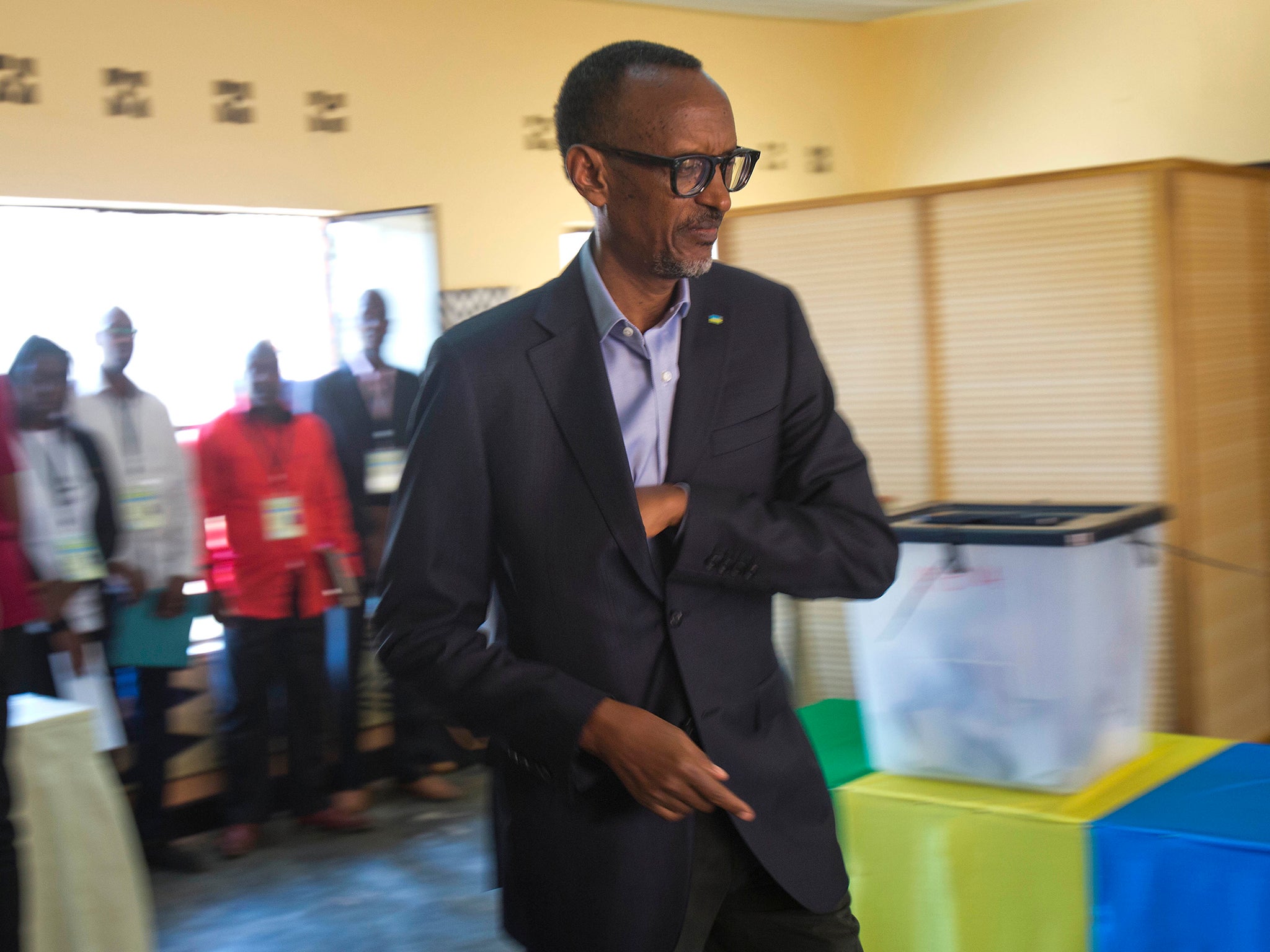Paul Kagame wins third term with 99 per cent of vote in Rwanda presidential election
Former rebel leader extends his 17 years in charge of country

Your support helps us to tell the story
From reproductive rights to climate change to Big Tech, The Independent is on the ground when the story is developing. Whether it's investigating the financials of Elon Musk's pro-Trump PAC or producing our latest documentary, 'The A Word', which shines a light on the American women fighting for reproductive rights, we know how important it is to parse out the facts from the messaging.
At such a critical moment in US history, we need reporters on the ground. Your donation allows us to keep sending journalists to speak to both sides of the story.
The Independent is trusted by Americans across the entire political spectrum. And unlike many other quality news outlets, we choose not to lock Americans out of our reporting and analysis with paywalls. We believe quality journalism should be available to everyone, paid for by those who can afford it.
Your support makes all the difference.Rwanda's long-time President Paul Kagame has easily won a third term in office in a vote he had called "a formality".
The result gives him another seven years leading the small east African nation praised for its economic performance but criticised for its silencing of opponents.
Electoral authorities overnight said Mr Kagame had won more than 98 per cent of the vote with 80 per cent of ballots counted, with no major change expected when final results are announced later on Saturday.
He addressed jubilant supporters at party headquarters and urged Rwandans, including those who did not support him, to work together.
"This election was criticised so much due to me continuing to be your leader, especially people from outside the country because they oppose the will of Rwandans," he told supporters. "But Rwandans have shown that it was not manipulated by anyone but their own will."
Mr Kagame has led the country of 12 million people since his rebels helped to end its genocide in 1994 during which more than 800,000 Tutsis and moderate Hutus were massacred by Hutu extremists.
The 59-year-old has been praised for the country's economic growth, but human rights groups accuse his government of using state powers to silence opposition. Rwandan authorities, including the president, deny it.
A constitutional amendment in 2015 allows him to stay in power until 2034 if he pursues it.
Mr Kagame was running against Frank Habineza of the Democratic Green Party of Rwanda - the only permitted opposition party - and independent candidate and former journalist Philippe Mpayimana.
Three potential candidates were disqualified for allegedly failing to fulfil requirements including collecting enough signatures.
With 80 per cent of votes counted, Mr Mpayimana had just 0.72 per cent and conceded defeat and congratulated Mr Kagame. Mr Habineza had 0.45 per cent.
More than 80 per cent of Rwanda's 6.9 million registered voters cast their ballots, according to Charles Munyaneza, executive secretary of the Rwanda Electoral Commission.
In Rwanda's capital Kigali, there had been little hint of the coming vote. Candidates had been barred from putting campaign posters in most public places, including schools and hospitals.
The electoral commission vetted candidates' campaign messages, warning that their social media accounts could be blocked otherwise.
Two decades of often deadly attacks on political opponents, journalists and rights activists created a "climate of fear" ahead of Rwanda's election, Amnesty International said in a report last month.
In 2010, Mr Kagame won with 93 per cent of the vote.
In July, he told a campaign rally that "the day of the presidential elections will just be a formality".
AP
Join our commenting forum
Join thought-provoking conversations, follow other Independent readers and see their replies
Comments